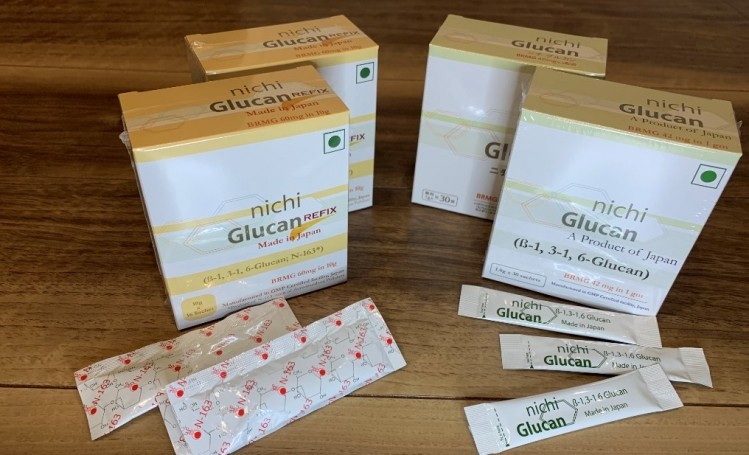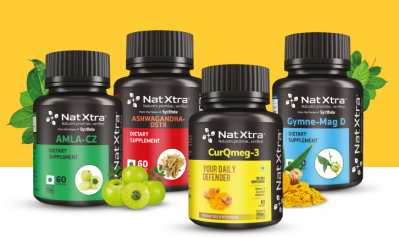Combination of two beta-glucans reduced inflammatory biomarkers in COVID-19 patients – India clinical trial

In this clinical trial conducted in India, patients who received the beta-glucans in addition to standard treatment saw a greater reduction in C-reactive protein (CRP), ferritin, and Interleukin 6 (IL-6), which are important biomarkers to predict the course of COVID-19 and risk of developing severe disease and respiratory failure.
Currently, treatment for COVID-19 involves standard care comprising of medications such as dexamethasone, azithromycin, remdesivir, as well as use of antiviral agents and immunomodulators to control inflammation by preventing a cytokine storm and further tissue damage.
“With some vaccines approved and a variety of vaccine candidates under investigation and in clinical trials, adjuvants have been advocated to overcome challenges of low immunogenicity and inefficient protective immunity,” said researchers from India and Japan who conducted the current study.
Examples of current adjuvant treatments for COVID-19 include quercetin, vitamin D, zinc and beta-glucans.
The beta-glucans (AFO-202 and N-163 strains) assessed in this study was manufactured by Japan-based GN Corporation.
One of the authors, Dr Samuel Abraham, who is head of R&D at GN Corporation, told NutraIngredients-Asia: “AFO-202 is an immune enhancer with some immune modulation, while N-163 is a better immune modulator, which were earlier proven in both pre-clinical studies and studies in healthy volunteers in Japan.
"In this study, compared to the control group, the cytokine storm and coagulopathy markers continued to be under significant control on day 15 in those who consumed the two variants of AFO-202 and N-163 strains together.”
The study is being peer-reviewed now and available on medRxiv.
Study design
This study was conducted at Madras Medical College Hospital, in collaboration with the TN Dr MGR Medical University in Chennai, India.
In total, 40 adult patients with mild to moderate COVID-19 were recruited. They required hospitalisation, but those requiring intensive care were excluded.
They were divided into two groups. The first group was the control (n=22), receiving standard treatment for COVID-19 including Dexamethasone, Azithromycin, Remdesivir, Vitamin C, Zinc and Enoxaparin sodium.
The second group received standard treatment as well as AFO-202 beta glucan (3g/day) and N-163 beta glucan (15g/day). Both trials were 15 days long.
AFO-202 beta glucan is in the form of granules, while N-163 beta glucan is administered as a gel sachet.
The primary outcomes were the time taken for improvement, complete recovery, recurrence in typical symptoms from baseline.
The secondary outcomes were mortality, progression to critical care admission, oxygen/life-support and tests for biochemical parameters such as ferritin, IL6, and CRP.
Biomarker findings
The findings revealed that CRP reduced from 33.95 mg/l at baseline to 5.64 mg/l on day 7 for the treatment group, and continued to be under control on day 15 (5.68 mg/l).
For the control group, CRP levels declined from 33.95 mg/l at baseline to 5.07 mg/l on day 7, however, it further increased to 14.6 mg/l on day 15.
The same trend was observed in ferritin, the treatment group’s levels dropped from 560.58 ng/ml at baseline to 261.44 ng/ml (day 7) and 182.40 ng/ml (day-15). For the control group, ferritin levels fluctuated from 535.24 ng/ml at baseline, to 116.66 ng/ml on day 7 and 291.95 ng/ml on day 15.
Similarly for IL-6, the treatment group also showed a significantly larger decline between day 7 and day 15 compared to the control group.
Researchers said: “These findings add to the advantages of these nutraceutical agents as continuous oral supplemented adjuncts for treatment and prevention of COVID-19 after necessary validation in larger multicentric studies.”
This study was conducted in late 2021, before the Omicron variant emerged. Researchers said the current and past evidence “make them (beta-glucans) worth considering as the optimal supplemental treatment and prophylaxis adjuvants,” and pointed out that future studies will need to be conducted for variants of concern.
For GN Corporation, Abraham told us: “Having understood the multiple potentials of Nichi Glucan range of products, we are now studying the association between gut microbiome and metabolome in healthy and disease status, immune modulation in neurological diseases like multiple sclerosis and muscular dystrophies and gut microbiome in neurodevelopmental diseases and their potentials in acting as prophylaxis to Parkinsons disease and Alzheimer’s disease.”
Source: medRxiv preprint
https://doi.org/10.1101/2021.12.14.21267778
“Efficient control of IL-6, CRP and Ferritin in Covid-19 patients with two variants of Beta-1,3-1,6 glucans in combination, within 15 days in an open-label prospective clinical trial”
Authors: Samuel JK Abraham, et al.










